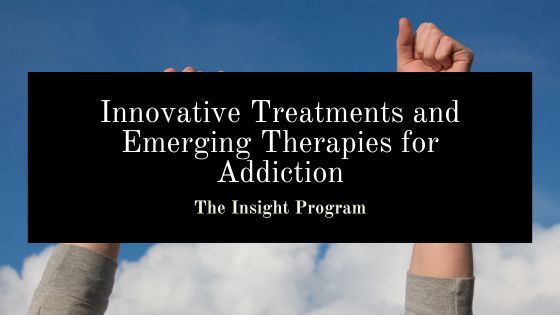Addiction, a chronic and complex disease, affects millions worldwide, disrupting lives and communities. Traditional treatments like counseling, support groups, and medication-assisted therapy (MAT) have been mainstays in the fight against addiction. However, the evolving understanding of addiction’s neurological, psychological, and social dimensions has paved the way for innovative treatments and emerging therapies. These new approaches offer hope for more effective and personalized care.
Neurofeedback Therapy
One of the cutting-edge treatments gaining traction is neurofeedback therapy. This technique involves monitoring brainwave activity and providing real-time feedback to patients to help them regulate their brain function. By reinforcing positive brain patterns and diminishing negative ones, neurofeedback aims to reduce cravings and improve emotional regulation. Studies have shown promising results, indicating that neurofeedback can be particularly effective for individuals with co-occurring mental health disorders, such as anxiety and depression, which often accompany addiction.
Transcranial Magnetic Stimulation (TMS)
Transcranial Magnetic Stimulation (TMS) is another innovative therapy making waves in addiction treatment. TMS uses magnetic fields to stimulate nerve cells in the brain, particularly targeting areas involved in mood regulation and addiction-related behaviors. This non-invasive procedure has shown efficacy in reducing cravings and withdrawal symptoms, especially in individuals addicted to substances like alcohol and opioids. TMS is also being explored for its potential in treating behavioral addictions, such as gambling and internet addiction.
Psychedelic-Assisted Therapy
Psychedelic-assisted therapy is experiencing a renaissance, with substances like psilocybin (the active ingredient in magic mushrooms), MDMA, and LSD being studied for their potential therapeutic benefits. Under controlled conditions and guided by trained therapists, these substances can facilitate profound psychological insights and emotional healing. Early studies have demonstrated that psychedelic-assisted therapy can lead to significant reductions in substance use and long-lasting improvements in mental health. The profound, often spiritual experiences reported by patients can help break the cycle of addiction and foster a renewed sense of purpose and connection.
Virtual Reality Therapy
Virtual Reality (VR) therapy is an emerging technology showing promise in addiction treatment. By immersing patients in realistic, controlled environments, VR therapy can simulate high-risk scenarios and teach coping mechanisms in a safe setting. For example, individuals recovering from alcohol addiction can practice refusing drinks in a virtual bar, honing their skills for real-world situations. VR therapy can also be used to address underlying trauma, a common factor in addiction, by allowing patients to reprocess traumatic memories in a therapeutic context.
Genetic and Epigenetic Therapies
Advances in genetic and epigenetic research are opening new avenues for personalized addiction treatment. By understanding an individual’s genetic predisposition to addiction, therapies can be tailored to target specific genetic markers. Additionally, epigenetic therapies, which modify the expression of genes without changing the DNA sequence, hold potential for reversing the changes in brain function caused by chronic substance use. These therapies are still in their infancy, but they represent a significant leap towards individualized and precise addiction treatments.
Digital Therapeutics and Mobile Health Apps
The proliferation of smartphones has led to the development of digital therapeutics and mobile health apps designed to support addiction recovery. These tools offer various features, including virtual counseling, medication reminders, mood tracking, and peer support networks. They provide continuous, real-time support, making it easier for individuals to manage their recovery outside of traditional therapy sessions. The convenience and accessibility of these digital solutions make them an appealing adjunct to other treatment modalities.
Conclusion
The landscape of addiction treatment is rapidly evolving, with innovative therapies offering new hope for individuals struggling with substance use disorders. Neurofeedback therapy, TMS, psychedelic-assisted therapy, VR therapy, genetic and epigenetic interventions, and digital therapeutics represent a diverse array of approaches that cater to the multifaceted nature of addiction. As research continues to advance, these emerging therapies have the potential to transform addiction treatment, providing more effective, personalized, and holistic care. With ongoing innovation, the future looks promising for those seeking to overcome addiction and reclaim their lives.

